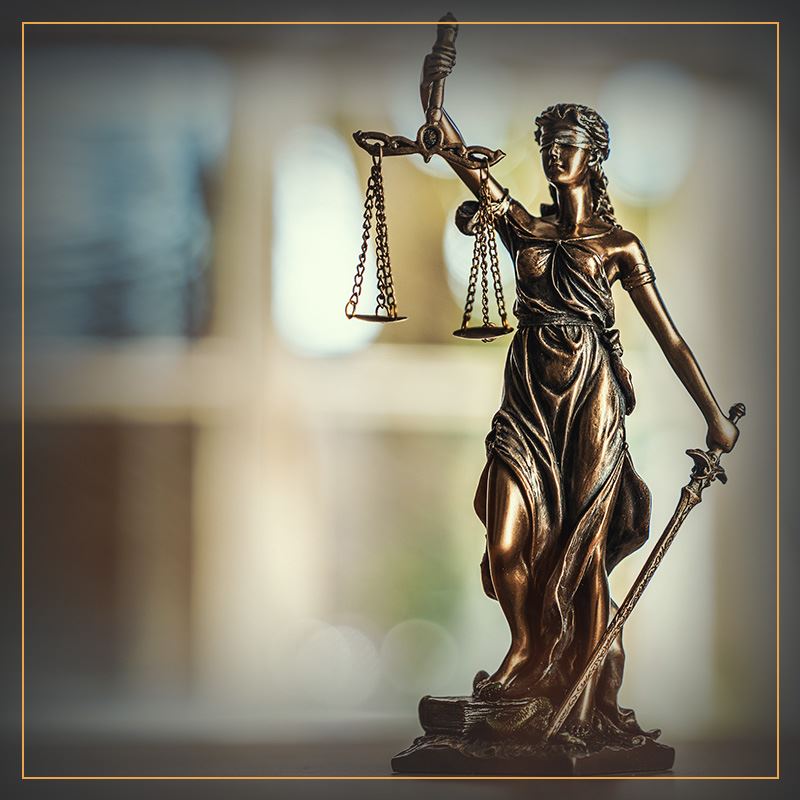
St. Louis Criminal Appeal Attorney
Do you need to appeal a criminal conviction in or around St. Louis, Missouri?
If you have been convicted and sentenced for a crime by a local court and wish to appeal your case, you need to contact the Whiteley Law Firm immediately. Once your trial or criminal proceeding is over, you have 10 days to file a petition to appeal. As a St. Louis criminal defense attorney who focuses on this field of law exclusively, Attorney Whiteley can review your case and evaluate it in terms of the appeal process. He can advise you on the steps involved, the likelihood of winning in such an action, and represent you in an appeal should it be in your best interests to do so.
In an appeal, you will be asking a higher court to review the lower court's decision. The higher court will evaluate all of the evidence and trial procedure to determine if any prejudicial mistakes or legal errors occurred which might invalidate the verdict or sentence. In an appeal, juries and witnesses are not involved. The opposing parties submit briefs to the court, stating their arguments for or against the case and their legal basis for such. In court, they may argue their side before the judges, who determine the outcome.
Appeal Cases in Missouri
The Missouri Court of Appeals handles all appeals from district courts. If the appeal is lost at this level, the individual may file a petition with the Missouri Supreme Court, which may or may not take the case for review, based on its merits. Legal errors which may justify an appeal include such things as lack of adequate evidence, allowing evidence into the proceeding which was obtained unlawfully or is in some other way inadmissible, errors on the part of the lower court's judge in instructing the jury, misconduct or mistakes made by the jury, and more.
To find out more about how your case may warrant an appeal and the process involved, it is advisable to arrange for a consultation as soon as possible.
Contact the St. Louis criminal appeal lawyerat the firm if you believe you were convicted in error today.

What Sets Us Apart From The Rest?
Whiteley Law Firm is here to help you get the results you need with a team you can trust.
-
Accessible Support
We make it easy for you to reach out and discuss your case, offering multiple avenues including phone, voicemail, online submission, and office visits for your convenience.
-
Trusted AdvocacyWe understand the gravity of your situation and are committed to earning your trust through unwavering dedication to your defense.
-
Thorough Defense StrategyOur approach involves a meticulous evaluation of your case, ensuring every possible defense avenue is explored to protect your rights.
Our FAQ
Have questions? We are here to help. Still have questions or can't find the answer you need? Give us a call at 888-910-8827 today!
-
Can I represent myself?Yes. Although the right is not unlimited, in every criminal prosecution, the accused must be permitted to act as his or her own attorney. However, the better question is whether you should represent yourself. To that question, the answer is undeniably no. For more information on why a criminal defendant should hire an experienced criminal defense attorney, please read more here.
-
What if I am guilty?
Although your thoughts on guilt or innocence of the charges against you are important, it is only one factor that should be considered in how to dispose of the criminal case.
The Whiteley Law Firm is committed to ensuring that those charged with criminal offenses receive a result that is in their best interest. In doing so, we always ensure that the conduct of the police has been proper and the prosecution can meet their burden of proof.
-
Will my case be dismissed if the police did not read me my Miranda rights?
The continued popularity and proliferation of crime drama television shows perpetuates the idea that the police must advise the suspect of his or her Miranda rights immediately upon being arrested. This television show concept, however, is a myth. The police are under no obligation to inform someone of their constitutional rights once placed in custody.
The Miranda warnings – generally, the right to remain silent and the right to an attorney – take their name from the 1966 U.S. Supreme Court decision of the same name, Miranda v. Arizona. The landmark decision requires law enforcement officials to inform individuals in custody of their rights prior to any questioning. In other words, with some limited exceptions, Miranda warnings are only required when the police interrogate someone while they are in custody.
Given these two requirements, the question whether a case will be dismissed can become a complex question. Suffice it to say, while complete dismissal of the case is not impossible, the more likely result from a Miranda violation would be suppression of the illegally obtained evidence.
